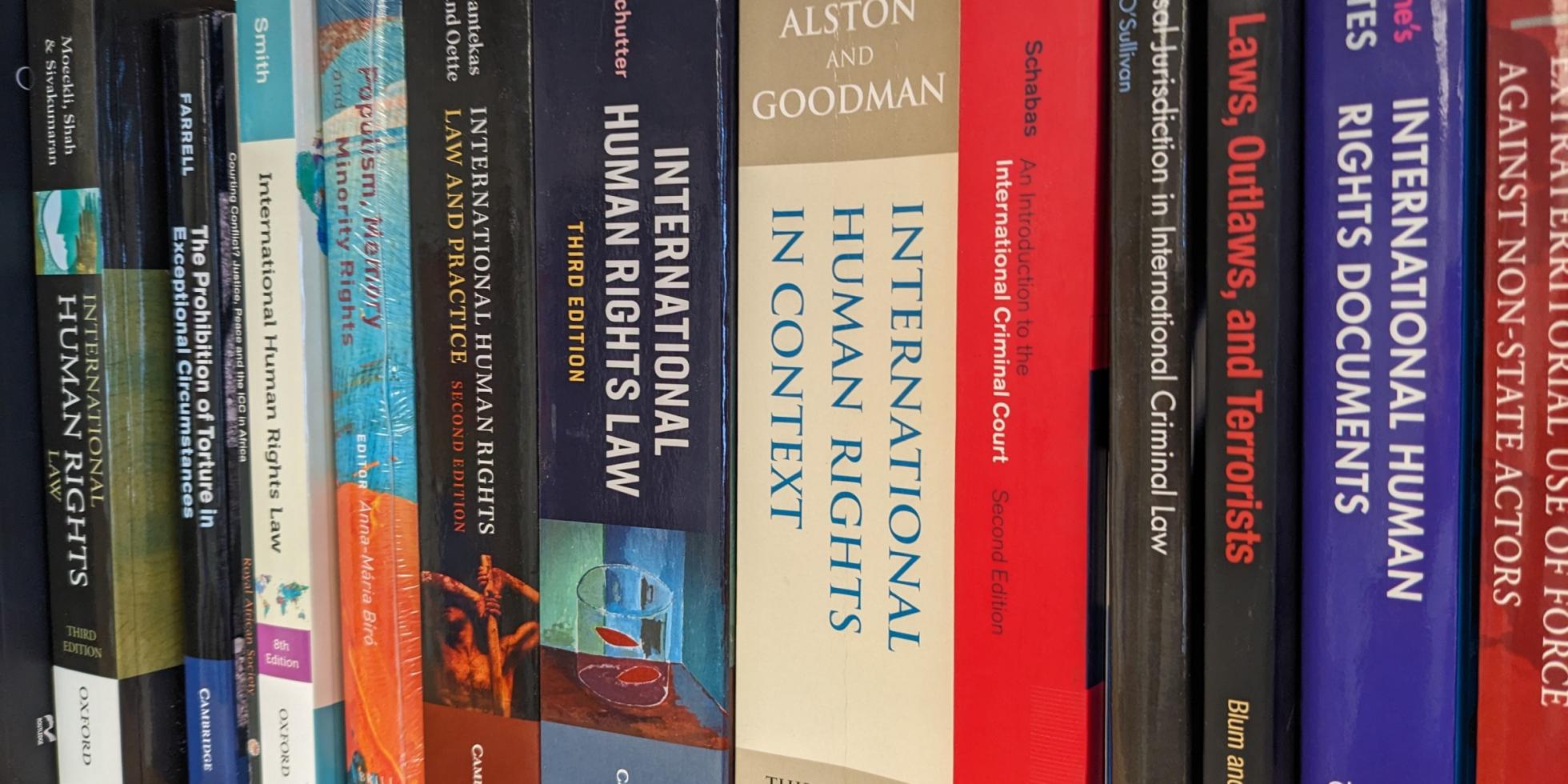The virtual human rights library brings together resources from multiple libraries and information services, both internal and external, to create an online hub dedicated to the study of human rights. This curation is unique in its interdisciplinary concerns and focuses on writings and research from social sciences, humanities, and law.
The virtual library is continually updated with the latest academic research in issue areas, as well as with relevant films, recorded conversations, and other forms of media.
Please Note:
The Virtual Library is usable by all visitors, but the hyperlinks to materials listed are for UChicago community members with a CNet ID and password.
Please direct feedback and suggestions to Kathleen Cavanaugh.
For technical assistance, email pozenhumanrights @ uchicago.edu.
Searchable Database
Click into the dropdowns to select the disciplines, keywords, and media type for your search, and then hit "Apply."
The Ethical Soundscape: Cassette Sermons and Islamic Counterpublics
An essential aspect of what is now called the Islamic Revival, the cassette sermon has become omnipresent in most Middle Eastern cities, punctuating the daily routines of many men and women. Hirschkind shows how sermon tapes have provided one of...
The Farming of Bones
It is 1937, the Dominican side of the Haitian border. Amabelle, orphaned at the age of eight when her parents drowned, is a maid to the young wife of an army colonel. She has grown up in this household, a...
The Forgotten Plague: How the Battle Against Tuberculosis was Won - and Lost
Ryan examines the history of tuberculosis and the scientists whose research eventually led to the ability to cure TB in individuals: Gerhard Domagk, a German who worked literally while WW II bombs destroyed his surroundings; Jorgen Lehman, a Dane, who envisioned a...
The Googlization of Everything(And Why We Should Worry)
In the beginning, the World Wide Web was exciting and open to the point of anarchy, a vast and intimidating repository of unindexed confusion. Into this creative chaos came Google with its dazzling mission—“To organize the world’s information and make...
The Great Departure: Mass Migration from Eastern Europe and the Making of the Free World
Between 1846 and 1940, more than 50 million Europeans moved to the Americas in one of the largest migrations of human history, emptying out villages and irrevocably changing both their new homes and the ones they left behind. With a...
The Great Enterprise: Sovereignty and Historiography in Modern Korea
In The Great Enterprise, Henry H. Em examines how the project of national sovereignty shaped the work of Korean historians and their representations of Korea's past. The goal of Korea attaining validity and equal standing among sovereign nations, Em...
The Handmaid's Tale
The Handmaid's Tale is a novel of such power that the reader will be unable to forget its images and its forecast. First published in 1985 and set in the near future, it describes life in what was once the United...
The Harmony of Illusions: Inventing Post-Traumatic Stress Disorder
As far back as we know, there have been individuals incapacitated by memories that have filled them with sadness and remorse, fright and horror, or a sense of irreparable loss. Only recently, however, have people tormented with such recollections been...
The Helsinki Effect: International Norms, Human Rights, and the Demise of Communism
Human rights norms do matter. Those established by the Helsinki Final Act contributed directly to the demise of communism in the former East bloc, contends Daniel Thomas. This book counters those skeptics who doubt that such international norms substantially affect...
The Human Rights Revolution: An International History
Between the Second World War and the early 1970s, political leaders, activists, citizens, protestors. and freedom fighters triggered a human rights revolution in world affairs. Stimulated particularly by the horrors of the crimes against humanity in the 1940s, the human...

